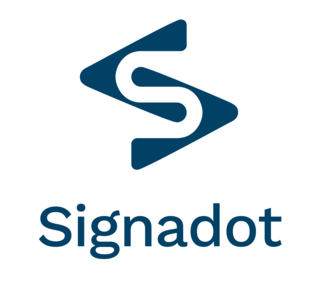Website: www.knimbus.com
Headquarters: Gurgaon, India
Year Founded: 2010
Founders: Rahul Agarwala and Tarun Arora
Twitter: @knimbusindia
Facebook: facebook.com/pages/Knimbus/204971746280074
Company Description: Knimbus is a one-stop research hub for users in the scientific, technical and medical fields to discover and share knowledge.
# # #
 By Rahul Agarwala, co-founder and CEO
By Rahul Agarwala, co-founder and CEO
Product Overview
Knimbus is a one-stop research hub for users in the scientific, technical and medical fields to discover and share knowledge. We offer a single window for real-time discovery across millions of articles, books, and patents, with a facility to share content and the opportunity to create shared projects and build peer networks.
A leader in the India market with the most comprehensive and scalable technology platform, the Knimbus platform has been enabled in over 650 academic and research institutions like IITs, IISERs, CSIR Labs, CDOT, CDAC and various state and central universities.
The platform delivers higher research productivity and provides the following advantages:
- Discover knowledge faster with single window access to over 95 percent of the world’s scientific information from renowned publishers, web resources and open access content.
- Personalize search and content access for a more effective and noise-free experience.
- Securely collaborate, share insights and do joint projects with over 60,000 researchers on the Knimbus platform.
- Increase visibility of research and build collective intelligence by tagging and commenting on relevant research content.
- Improve utilization of institutional resources with seamless integration of all library subscriptions and tools for effective information dissemination.
Founders’ Story
Tarun Arora and I co-founded Knimbus in November, 2010. I have been in the information industry for the last 15 years. During this period, I have built several technology-intensive ventures. Between 1997 and 2001 I pioneered online content syndication as part of the leadership at India’s largest digital content aggregator: Matrix Information. More recently, while establishing a large search and collaboration technology business in Japan, I had the opportunity to help build solutions for R&D departments at firms like Honda, Toyota and Canon.
Tarun, co-founder of Knimbus and CEO of GIST, a reseller of scientific, technical, and medical information, has a deep understanding of the Indian research market.
After returning to India, a chance conversation between myself and Tarun turned to R&D in India. I realized it was no easy task for researchers in India to access research and collaborate with their peers. This offered an opportunity to replace the isolated ivory towers that exist in the field of research today with a common platform to discover and share information that had the potential to democratize knowledge and spur innovation. That’s when Tarun and I decided to launch Knimbus.
Rahul Agarwalla, CEO and co-founder
I have more than 15 years of experience in the technology and information industries. Prior to Knimbus, I was in Japan where I created the search software division for Uchida Spectrum, a leading Japanese software firm. Previously I was instrumental in building India’s largest digital content aggregator: Matrix Information. I also co-founded Contentscape a KPO, now known as Integreon.
An entrepreneur who has started and exited multiple ventures, I have a passion for creating new products and businesses, and a proven track record of scaling technology-intensive ventures.
Tarun Arora, director and co-founder
An industry veteran with 20 years of experience in technology, operations, and entrepreneurship, Tarun is the director and co-founder of Knimbus. Tarun is also the CEO of Global Information Systems (GIST)—a leading content provider to academic and research Institutes across India. Prior to GIST, he founded and headed the India operations of leading expert network provider, Gerson Lehrman Group (GLG). At GLG he built a team of over 120 people, to support GLG’s global research operations. Tarun was also founder of Jalva Media, an offshore outsourcing company focused on the digital media industry.
He has a bachelor’s degree in Computer Science from the University of Texas, Austin and a master’s degree in Computer Science from the University of Wisconsin, Madison.
Marketing/Promotion Strategy
Currently, Knimbus works on the ‘freemium’ model, allowing its prospects to experience the value of the platform without any monetary obligations and at the same time offering premium customers the flexibility to customize. The focus of the company is to channelize the presence and build awareness of the platform in all prospective user organizations.
We actively work with sales channel partners and participate in library events, workshops and other related events to spread awareness amongst user organizations. Knimbus has also received a better than 20 percent average response to the digital impressions—another validation of the need for the product. The word-of-mouth driven by the product itself is a major contributor to the number of unique visitors. With the advent of Knimbus-Open, a product with much wider applicability, the focus is now to scale our digital marketing efforts to expand the reach globally.
Market Opportunity
The need for a platform like Knimbus can be measured from the response we have received. Apart from the wide acceptance in India, Knimbus caught the eye of many librarians, researchers and technology companies in Europe and the United States during our participation in international events like the Frankfurt Book Fair and SLA conference in Chicago. Leading STM [scientific, technical, medical] information companies like WTCOX in the U.S. and SAM in the EU have partnered to bring Knimbus to their respective markets. This encouraging response validates the global nature of Knimbus’ value proposition.
The global size of the STM information industry is over $29 billion. With the growing focus on increasing the knowledge intensity of economies and the consequent rise of the value of intellectual property, this market has seen substantial and steady growth, despite adverse economic conditions.
More importantly, the trend of openness in science promises to bring a tsunami of change. Governments and funding agencies are mandating that research funded by them be freely accessible as it is ultimately for the public good.
As more content becomes more accessible, the challenge that arises is of sifting through this sea of information. Knimbus plays a critical role for researchers in pin pointing relevant information and enabling collective intelligence and collaborative filtering.
How We’re Different from the Competition
Online search and social tools are both widely accepted, with each of them having multiple players. However, they are seen as separate platforms. We at Knimbus believe that the time has come to bring the two together—search + social. Combining these aspects is not the only differentiation but tailoring them to suit the researchers’ workflow is the key value addition.
In the context of R&D, the synergy created through collective intelligence creates a whole which is much greater than the sum of the parts. What people search for, read, tag, comment on and share creates an information signal leading to better information discovery. It is a virtuous cycle which makes R&D more effective and productive.
Combining search + social required us to build a unique system which uses leading edge frameworks and open source tools which are used by leading web services firms like Facebook and LinkedIn.
At the company we have built a massively parallel system with intelligent algorithms that enables search and analysis of 100s of content sources in real time. This is a step change from earlier federated search technologies and very different approach from ‘Indexing/Discovery’ services. We believe Knimbus’ approach ensures currency and transparency of information and is friendlier for both user institutions and publishers. This cannot be matched by the Indexing/Discovery services approach due to issues like a.) embargo period where content is only available on the publisher’s site; b.) dependence on content feeds from publishers; and c.) their own indexing cycles.
At Knimbus, the social aspect has to be balanced with the fact that any network of scholars, scientists and researchers is knowledge-driven. While there are many large and popular social networks, they have shortcomings from a researcher’s perspective:
- The casual ambience of popular web services is too noisy for serious deliberation.
- Inability to verify identities makes it difficult to build new relationships or to understand the importance and veracity of statements and comments.
- Poor or complex privacy controls make experimentation dangerous due to the risk of making information public that should remain private.
- Content quality is suspect. Most of the user generated content proliferating social networks is not useful, thus creating a needle in the haystack situation.
The focus on Knimbus is to make researcher’s daily workflow simpler by providing access to the right information and like-minded experts in a noise-free environment.
Business Model
Knimbus offers both a basic free version and fee-based subscription service. The basic platform offers search and access to open content, social and collaboration features. We shall continue doing so in line with our mission to democratize knowledge.
The paid subscription ranges from $2,000-$10,000 per institution and includes premium information sources and features like subscription management, bibliographic tools and analytics. We will be adding more premium services in the future, which will be available for a fee to subscribing institutions.
Current Needs
As Knimbus expands its reach globally, there will be a need to raise capital. Knimbus is also looking to grow its software development, marketing and operations teams.
Knimbus – www.knimbus.com











